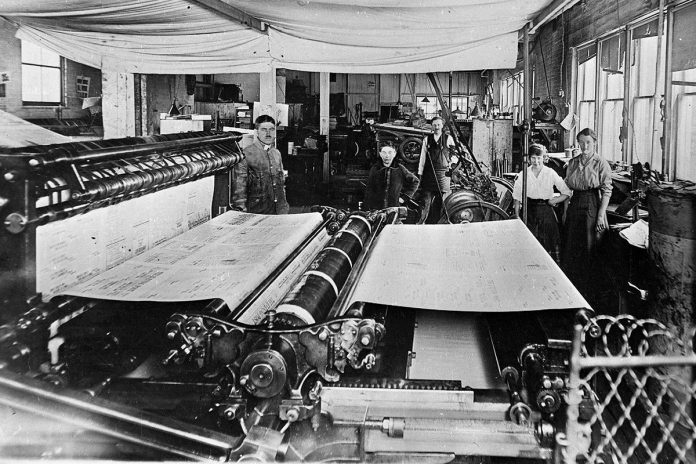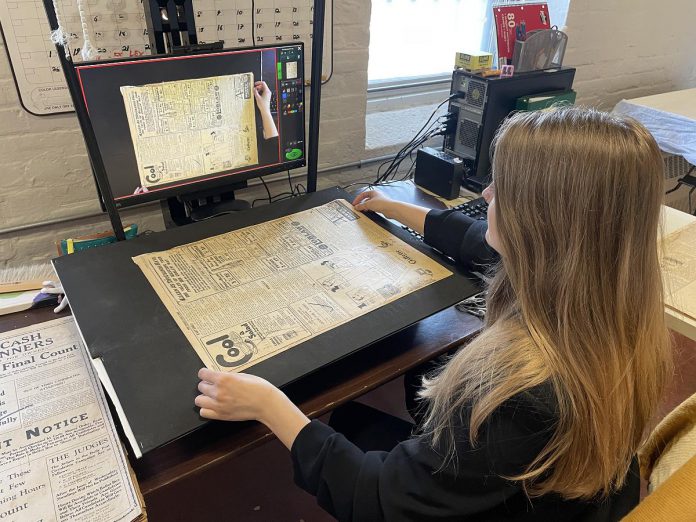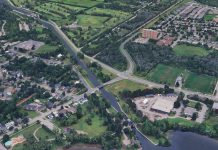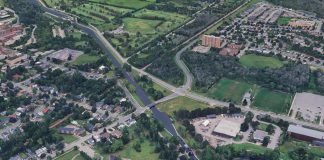
Kawartha Lakes Museum & Archives is in the process of digitizing historical issues of Lindsay newspapers along with 4,000 Lindsay Post negatives that belonged to the late journalist, author, and historian Alan Capon.
Over the course of this year, project staff Jenna Locke and Har-Leigh Arsenault are scanning newspaper issues from 1915 to 1973 and uploading them to the Internet Archive where members of the public can view them and search them by keyword.
So far, over 2,000 pages have been uploaded from issues of The Lindsay Daily Post, The Lindsay Post, The Evening Post, and The Watchman-Warder published from 1917 to 1928, with new issues added daily. They can be viewed at archive.org/details/klma_newspapers.
Locke and Arsenault will also be digitizing 4,000 Lindsay Post negatives that belonged to Alan Roy Capon. The English-born Capon came to Canada in 1957, where he worked in the Peterborough Examiner’s Lindsay office, was editor of the Lindsay Daily Post, editor and publisher of the Picton Gazette, a staff writer for the Kingston Whig-Standard, and wrote a column for the County Weekly News for 14 years before he died in Prince Edward County in November 2014.
Also an historian, Capon authored around 25 non-fiction books, including his final book, a posthumously published biography of Senator Billy Fraser.
“In recognizing the historical gap present in Kawartha Lakes’ history after 1914, this project seeks to fill this history for researchers in our area that hasn’t been made available before,” says Zac Miller, archivist with Kawartha Lakes Museum & Archives, in a media release. “When looking at the negatives that have been scanned, many are of events and individuals that people today will remember and reminisce about fondly.”

According to Miller, that includes events such as the Academy Theatre being renovated, Prime Minister John Diefenbaker visiting Lindsay, Lindsay Little Theatre shows, the Kinmount Fair, and many scenery photographs of Fenelon Falls and Fenelon Museum.
“Digitizing and describing these negatives is rewarding because so many of these events and moments captured would not be written about in the history books, but document important fragments — big or small — of our history not seen before,” Arsenault adds.
In early 2024, Kawartha Lakes Museum & Archives is planning a virtual exhibit on Alan Capon on its website at www.klmuseumarchives.ca that will detail his life and highlights some of the negatives representing the history of Kawartha Lakes in the 1960s and 1970s.


























